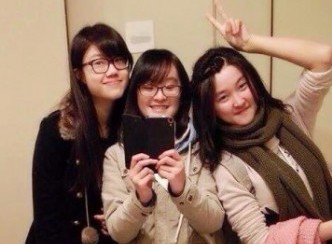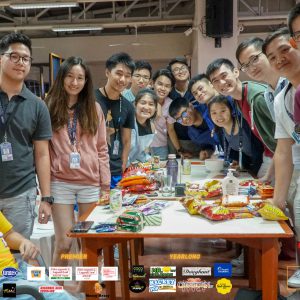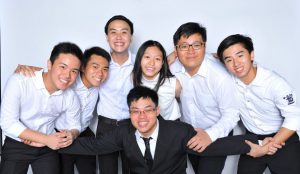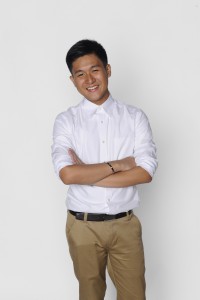Sarah Woo is a bubbly girl from Xiamen in Mainland China, where most ancestors of Chinese-Filipinos hail from. As an international student volunteer for Soochow University Taiwan, she finds herself constantly immersed in diverse cultures outside her homeland from the moment she set foot in Taiwan. Months ago, she had the chance to come to the Philippines as a volunteer for Gawad Kalinga. In her interactions with Filipinos, she was more than happy to share her life as a Mainland Chinese and some similarities and differences of cultures she sees between hers and ours.
- The Mainland Chinese Twist to FaceBook and Google
Sarah said she and her friends mostly use Weibo and Baidu to connect with other people across the web. According to her, Weibo is the equivalent of our big three as social networking sites while Baidu is their Google.
When Facebook, Twitter, and Instagram focus only on one aspect of social networking – friends, photos, and 140-word characters, Weibo has them all, which may be how they have charmed their way into the hearts of the mainland Chinese.
Meanwhile, Baidu, unlike Google, provides a search engine that is placed under government censorship. It is also monopolized into China’s largest search engine for its incorporation of Chinese-language terms, showing just how important language can be.
Sarah also pointed out the differences she encountered with the local Chinese-Filipinos she met. While most mainland Chinese are fluent in Mandarin, they speak better English and for some, the Hokkien dialect, intermixing with Filipino terms and words.
- Romance: Not-so-“Chang Cheng”
It wasn’t as difficult to explain the concept to Sarah using the Chinese term “Chang Cheng,” referring to the Great Wall of China. She revealed that she personally knows people in Mainland with such restrictions herself, although her family do not mind interracial or intercultural marriages.
In fact, marrying a person of a different race seemed to delight her. She also knows a lot of friends who are dating foreign men. Parental control just depends in every family. For her and her friends, they do not experience this “wall.”
- Big, Pretty Eyes
Since Chinese people tend to have “line-eyes”, or small eyes, elderly Chinese-Filipinos often marvel at people with big eyes, calling them “ya sui” (very pretty), “ya yen dao” (very handsome), or even “hue gi bin” (American-looking). This standard of beauty has trickled down to the younger generation, where the large, folded eyes of the Filipinos and Westerners are highly coveted.
Like these Chinese-Filipinos, Sarah affirmed that girls in China, with particularly big eyes are also considered to be very pretty. To give a better idea, she sent a photo of a girl she finds beautiful from the western part of Mainland China where most girls are considered good-looking.
- Gender Equality
Chinese culture is also popular for having “Zhong Nan Qing Nü” which is the Chinese saying that literally means “heavy on men and light on women” or the system of patriarchy. Footbinding practices in the past and the one-child policy have further pushed the idea of male supremacy as Chinese preferred sons than daughters.
Recently, there was a documentary about China during the Nationalist period, where a woman was interviewed. In it, she reveals that female life was to revolve around “the three must-obeys” – obey your father, husband, and son.
Sarah shares that such things aren’t as prevalent anymore in the Mainland. The poorer communities in China may still favor men over women. However, girls like her are now gaining equality with boys. For one, she could choose and has chosen to study in Soochow University away from the universities at home to get better education – a privilege girls couldn’t have back in the day.
- Politics: A Subject for the Adult World
And while some Filipinos she met openly talk about politics, Sarah said that as part of the youth, she is naturally more interested in talking about music, fashion and entertainment. Yet, if persistently asked, she would reveal her own thoughts about her country’s politics and governance.
It doesn’t feel as communist as what we’d think it’d be or how it was like when Mao was in power. But since she and her fellow youth know the fact that they “cannot do anything about it,” they simply brush off the topic and leave it to the adults.
Although she misses her hometown in the Mainland, Sarah is currently enjoying and learning in Taiwan, which opened to her a lot opportunities including coming to the Philippines. She remains in touch with some of her Filipino friends and is even considering coming back to Ateneo as an exchange student. Her insights are some things one can get a glimpse of among th”e mainland Chinese youth.
Written by Leyah Dizon and Faith Ong.




